#pop emote
Note
can i have some emojis of a person with dark brown fox ears and tail?? thank you,!






#discord emoji#emoji maker#emoji blog#custom emojis#custom emote#custom emoji#free to use#emoji#emote#brown fox#brown fox emote#brown fox emoji#fox emote#fox emoji#pop emote#pop emoji#fox pop emoji#fox pop emote#sleepy emoji#sleepy emote
17 notes
·
View notes
Text
As I keep shouting into the void, pathologizers love shifting discussion about material conditions into discussion about emotional states.
I rant approximately once a week about how the brain maturity myth transmuted “Young adults are too poor to move out of their parents’ homes or have children of their own” into “Young adults are too emotionally and neurologically immature to move out of their parents’ homes or have children of their own.”
I’ve also talked about the misuse of “enabling” and “trauma” and “dopamine” .
And this is a pattern – people coin terms and concepts to describe material problems, and pathologization culture shifts them to be about problems in the brain or psyche of the person experiencing them. Now we’re talking about neurochemicals, frontal lobes, and self-esteem instead of talking about wages, wealth distribution, and civil rights. Now we can say that poor, oppressed, and exploited people are suffering from a neurological/emotional defect that makes them not know what’s best for themselves, so they don’t need or deserve rights or money.
Here are some terms that have been so horribly misused by mental health culture that we’ve almost entirely forgotten that they were originally materialist critiques.
Codependency
What it originally referred to: A non-addicted person being overly “helpful” to an addicted partner or relative, often out of financial desperation. For example: Making sure your alcoholic husband gets to work in the morning (even though he’s an adult who should be responsible for himself) because if he loses his job, you’ll lose your home. https://www.nytimes.com/2022/07/08/opinion/codependency-addiction-recovery.html
What it’s been distorted into: Being “clingy,” being “too emotionally needy,” wanting things like affection and quality time from a partner. A way of pathologizing people, especially young women, for wanting things like love and commitment in a romantic relationship.
Compulsory Heterosexuality
What it originally referred to: In the 1980 in essay "Compulsory Heterosexuality and Lesbian Existence," https://www.journals.uchicago.edu/doi/abs/10.1086/493756 Adrienne Rich described compulsory heterosexuality as a set of social conditions that coerce women into heterosexual relationships and prioritize those relationships over relationships between women (both romantic and platonic). She also defines “lesbian” much more broadly than current discourse does, encompassing a wide variety of romantic and platonic relationships between women. While she does suggest that women who identify as heterosexual might be doing so out of unquestioned social norms, this is not the primary point she’s making.
What it’s been distorted into: The patronizing, biphobic idea that lesbians somehow falsely believe themselves to be attracted to men. Part of the overall “Women don’t really know what they want or what’s good for them” theme of contemporary discourse.
Emotional Labor
What it originally referred to: The implicit or explicit requirement that workers (especially women workers, especially workers in female-dominated “pink collar” jobs, especially tipped workers) perform emotional intimacy with customers, coworkers, and bosses above and beyond the actual job being done. Having to smile, be “friendly,” flirt, give the impression of genuine caring, politely accept harassment, etc.
https://weld.la.psu.edu/what-is-emotional-labor/
What it’s been distorted into: Everything under the sun. Everything from housework (which we already had a term for), to tolerating the existence of disabled people, to just caring about friends the way friends do. The original intent of the concept was “It’s unreasonable to expect your waitress to care about your problems, because she’s not really your friend,” not “It’s unreasonable to expect your actual friends to care about your problems unless you pay them, because that’s emotional labor,” and certainly not “Disabled people shouldn’t be allowed to be visibly disabled in public, because witnessing a disabled person is emotional labor.” Anything that causes a person emotional distress, even if that emotional distress is rooted in the distress-haver’s bigotry (Many nominally progressive people who would rightfully reject the bigoted logic of “Seeing gay or interracial couples upsets me, which is emotional labor, so they shouldn’t be allowed to exist in public” fully accept the bigoted logic of “Seeing disabled or poor people upsets me, which is emotional labor, so they shouldn’t be allowed to exist in public”).
Battered Wife Syndrome
What it originally referred to: The all-encompassing trauma and fear of escalating violence experienced by people suffering ongoing domestic abuse, sometimes resulting in the abuse victim using necessary violence in self-defense. Because domestic abuse often escalates, often to murder, this fear is entirely rational and justified. This is the reasonable, justified belief that someone who beats you, stalks you, and threatens to kill you may actually kill you.
What it’s been distorted into: Like so many of these other items, the idea that women (in this case, women who are victims of domestic violence) don’t know what’s best for themselves. I debated including this one, because “syndrome” was a wrongful framing from the beginning – a justified and rational fear of escalating violence in a situation in which escalating violence is occurring is not a “syndrome.” But the original meaning at least partially acknowledged the material conditions of escalating violence.
I’m not saying the original meanings of these terms are ones I necessarily agree with – as a cognitive liberty absolutist, I’m unsurprisingly not that enamored of either second-wave feminism or 1970s addiction discourse. And as much as I dislike what “emotional labor” has become, I accept that “Women are unfairly expected to care about other people’s feelings more than men are” is a true statement.
What I am saying is that all of these terms originally, at least partly, took material conditions into account in their usage. Subsequent usage has entirely stripped the materialist critique and fully replaced it with emotional pathologization, specifically of women. Acknowledgement that women have their choices constrained by poverty, violence, and oppression has been replaced with the idea that women don’t know what’s best for themselves and need to be coercively “helped” for their own good. Acknowledgement that working-class women experience a gender-and-class-specific form of economic exploitation has been rebranded as yet another variation of “Disabled people are burdensome for wanting to exist.”
Over and over, materialist critiques are reframed as emotional or cognitive defects of marginalized people. The next time you hear a superficially sympathetic (but actually pathologizing) argument for “Marginalized people make bad choices because…” consider stopping and asking: “Wait, who are we to assume that this person’s choices are ‘bad’? And if they are, is there something about their material conditions that constrains their options or makes the ‘bad’ choice the best available option?”
#mad pride#neurodiversity#ableism#ageism#youth rights#liberation#disability rights#classism#capitalism#mental health culture#pop psychology#feminism#emotional labor
6K notes
·
View notes
Text

ughhhhh i like him so much you dont even get it
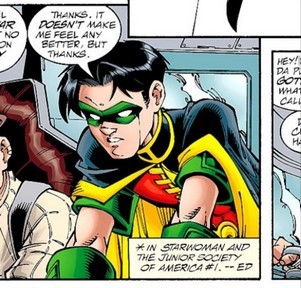
#like i see that shoulder pop and im overcome with emotion. my little guy!!!!!!#tim drake#robin#red robin#dc#batman#comics#young justice 1998#yj98#young just us#fanart#art tag
1K notes
·
View notes
Text
One thing I genuinely think the fandom forgets or underestimates is just how weird Neil is. Like we paint him to be this carismatic, flashy, cocky bad boy, but in reality he's stingy, skittish, balks at anything more personal then his thoughts on Exy and Cannot for the life of him socialize. Like in the Raven King, right after Seth dies, he straight up goes:
"Neil had to patch things up with [Allison] somehow, but he didn't know where to start. He'd never been good at winning people over. Someone like Allison wasn't likely to be his first success. "
Neil's spent his life living on the outskirts of "average" life. Ergo, he's cagey and flighty and so far removed from normal that even among the Foxes he'll always be a little unpredictable and odd. And you know what, good for him; we all deserve an antisocial introverted asshole to raly behind.
#bless Andrew for being able to sniff that out from the beginning#because like sure he gets better as the series progresses#and he gains more confidence#and ground to stand on#but like come on#this boy has absolutely no pop culture knowledge and probably thinks NSYNC is an acronym#for some disease#because that stuff is only needed when making connections with others#and neil was never allowed to do that#aftg#andrew minyard#neil josten#the foxhole court#the raven king#the kings men#im in the trenches of my 8th reread#and my own emotions#wish me luck#mine
2K notes
·
View notes
Text
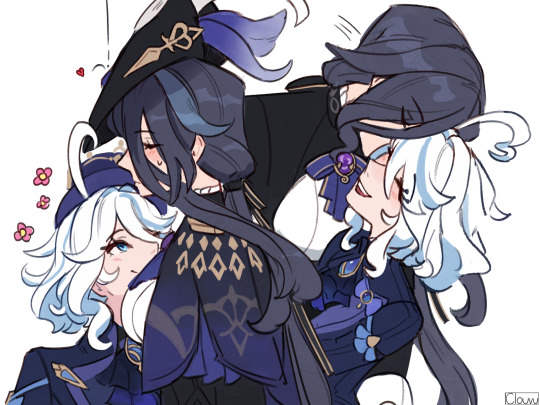
Offering lil doodles of them bc my eyes have been opened
#genshin impact#furina#clorinde#furinde#furina's character story 5 and her voicelines about clorinde has left me so mentally ill in the head#THE WAY FURINA FELT THAT SHE WAS NO LONGER WANTED AND ALMOST IMMEDIATELY CLORINDE POPPED UP TO INVITE HER TO A LIL GATHERING AMONG FRIENDS#NOT TO MENTION THAT CLORINDE IMMEDIATELY OFFERED TO PAY FOR HER TO HAVE BETTER LIVING CONDITIONS#EVEN WHEN DECLINED SHE STILL HELPED FURINA TIDY UP HER NEW APARTMENT BEFORE THEY WENT OUT FOR DRINKS TOGETHER#the way clorinde was no longer bound to any sort of contract but still went to visit furina and help her out of her own volition is so?????#AND the fact that little miss stonefaced 24/7 clorinde actually SMILED at furina???? chewing on aluminum foil#oughhhh they scratch at my brain so nicely#ALSO!! ALSO!! THE LONGING IN FURINA'S VOICE WHEN SHE SAYS HOW MUCH SHE TRUSTS CLORINDE AND MISSES HER IS SO!!!!!!!!!#crawling on the walls and howling as we speak#4.2 had made me already so deranged about furina to the point where she shot up from being just a funky lil guy to straight hyperfixation#I just thinjk;;;;;;; she deserves to be happy for once in her life (and have her lil emotional support bodyguard gf w/ her to smooch)
2K notes
·
View notes
Text
I really like that scene in mob psycho 100 where those random guys try to bully mob, but then, before mob can even do anything, dimple makes the guy disrobe and ritsu tries to kill him and the body improvement club just kinda circles up and squishes him between their pecs until the guys beg for mercy and leave. because it's a very stupid scene. kinda the epitome of the show's goofy weird slapstick humor. and so when you're watching it the first time you assume that's the purpose of the scene--to be dumb slapstick humor. because it succeeds at that, so it would be perfectly functional if that's all it was.
but THEN it turns out that it's actually setup for two episodes later when mogami traps him in a mind dimension to try and turn him evil and he's standing in the SAME PLACE and he sees ritsu on the bridge but ritsu doesn't acknowledge him. and he gets bullied. and not only is he powerless to defend himself, he has no one who cares. the scene plays out an evil mirrored version of itself where it's straightforward. it's harsh. it's empty. mob gets beaten up, and he is alone.
and that would've been a good scene on its own, too. but to me the fact that you see the silly ridiculous version of it FIRST (the one that culminates in the body improvement club suffocating a guy with their man boobs) is really important to me. because then, later, you feel how much more it hurts for mob to be alone when you've already seen what it could be, what it is. and then on a rewatch when you see the goofy version of the scene you can't help but feel an undercurrent of dread and a sense of how dangerously close the absurd is to tipping over into something way too real and visceral. which is a feeling that runs throughout the entire show.
anyway.
#pickle pontificates#mp100#mob psycho 100#for the record i haven't watched mob in a minute and i haven't really been thinking about it more than usual recently#but it's so stuck in my heart that sometimes a scene or a theme will just pop up as I'm like. brushing my teeth or whatever#and i get all emotional again#the way mp100 mixes absurdism and pathos is just really special to me okay. no one is out here doing it like that but mp100
888 notes
·
View notes
Text
skk au where they actually develop telepathy but it happens after Dazai leaves and during the four years they don't see each other. Chuuya is washing dishes one night and Dazai's voice pops up in his head. "I wonder what the slug is doing right now? Judging by the time maybe he's washing dishes." Chuuya goes still, mouth hung open and goes "yeah I am mackerel." He hears a "what the fuck" ten seconds later.
#this idea just popped up in my head and I had to let everyone know#I can feel a brainrot incoming#it starts off cute and emotional until dazai starts using it to annoy chuuya endlessly#Chuuya in a meeting: so gentlemen as we've disc-#Dazai in his head: you are. my fiiire#Chuuya: I-#Dazai yelling: THE ONE DESIIIREE#Chuuya: oh mY GOD SHUT UP#other executives and clients: huh#Dazai at the fish aisle: crabs or salmon for dinner?#Chuuya: salmon#Dazai: crabs it is#Chuuya: fuck you#Dazai at 3am: Chuuya would you love me if I was a dog#Chuuya: HOW DO I TURN THIS OFF#pls I need someone to indulge me here#skk#soukoku
2K notes
·
View notes
Note
I am also here to pester for more monster Clover, but take your time!
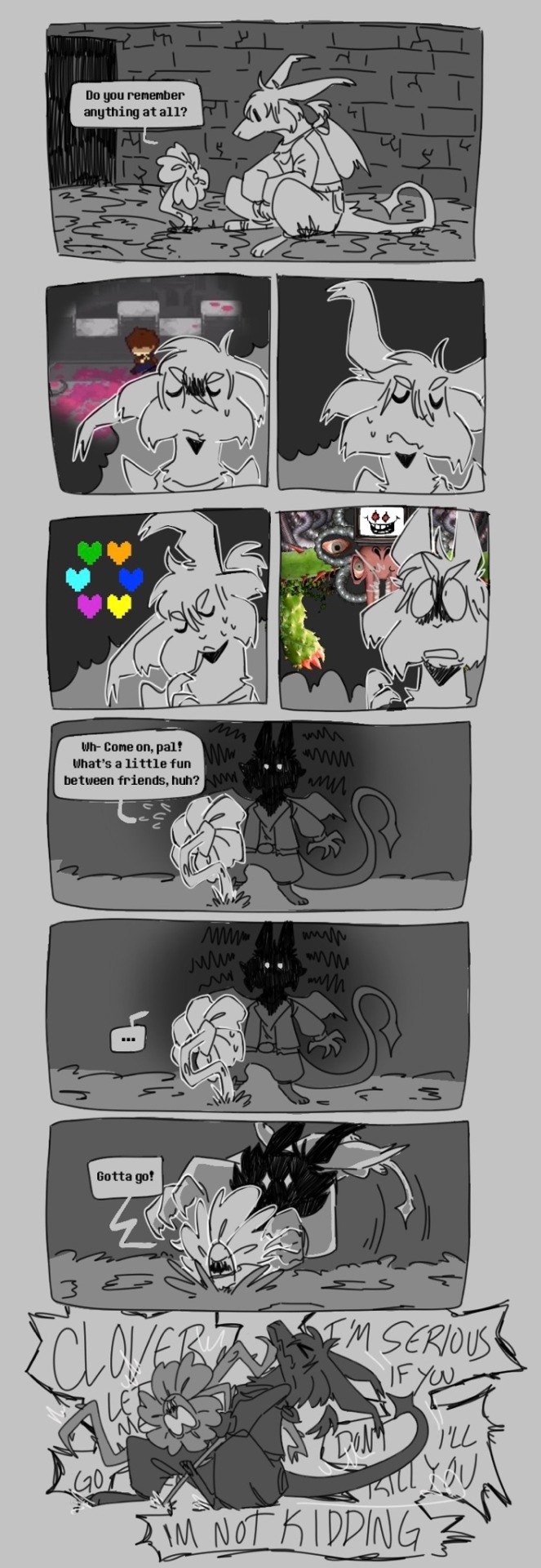
part 2 of this little comic snippet!
the girls are FIGHTINGGGG
#undertale yellow#clover uty#flowey the flower#monster clover au#my art#I HAVE. QUITE A FEW MONSTER CLOVER ASKS#but theyre all kind of emotional/serious so im taking my time with them!!#i have one more silly lighthearted comic then i will get to the portions people REALLY wanna see :4#was not expecting this au to pop off but. if people r interested ill keep goin! i got plenty to share#mcau art#mcau comic
546 notes
·
View notes
Text

I like that the Bishop's kids look like little crimes against god
#cult of the lamb#cotl#chaos art#i cannot describe the emotion i felt hatching the first egg i got and seeing this little thing pop out#i named it chaos jr#and if leshy doesnt start paying child support im sending him back to death limbo
679 notes
·
View notes
Text

this is. so Indulgent. i have no excuse!
#LISTEN listen i was hangin w/ my homeslice the other day#talking about gomens ofc#and yall know i cant turn off the laughingstock setting in my brain so the two Mixed Gloriously. horribly? wonderfully? terribly? both! all#i thought to myself 'oh theyd look so good in azi & crowley's fits#AND I WAS RIGHT-#in my mind theyre holding hands on their other side. we cant see it but they Are#scribble garnish#laughingstock#barnaby x howdy#howdy x barnaby#OUGH THEY'RE SOOOOOOO <3#i needed a pickmeup tonight and oh BOY have my emotions been picked up!!! and chucked skyward!!! yeehaw & hawyee!#they deserve to dine at the ritz...#except the ritz is howdys bodega & instead of tea they have sparkly fruity sodas <3#gonna slam my head into a wall They're So-#holding them both and squeezing till they pop!!!
931 notes
·
View notes
Text
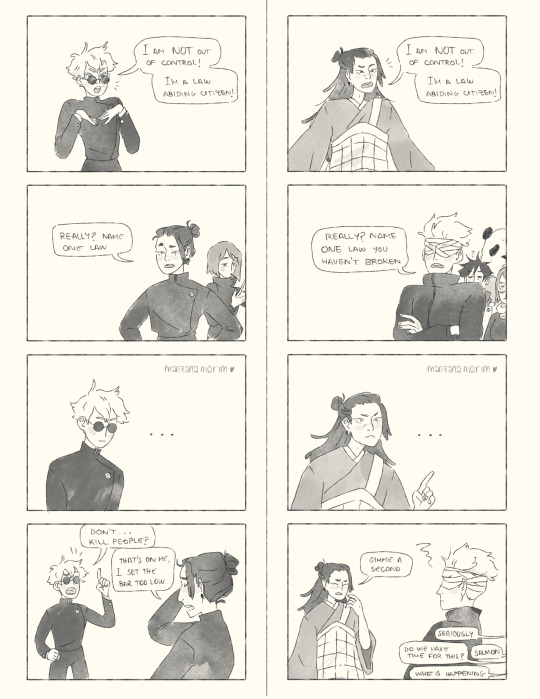
Redrew these oldies but goldies at the speed of light to celebrate (?) the emotional damage jjk season 2 has and is about to cause me :)
Also added shoko bc I like her <3
#marim's art#fanart#jjk#jujutsu kaisen#jjk 0#gojo satoru#geto suguru#shoko ieiri#okkotsu yuuta#zenin maki#panda jjk#inumaki toge#the sillies#I sure hope nothing bad happens#anyways look at my old jjk posts I actually popped off w some of those#haven’t drawn jjk in forever tho lol#stsg#I guess?#yea#catch me rewatching the new op and ed over and over while experiencing every emotion on the human spectrum
1K notes
·
View notes
Text

#discord emoji#emoji maker#emoji blog#custom emojis#custom emote#custom emoji#free to use#emoji#emote#racoon emoji#racoon emote#pop emote#pop emoji#racoon pop emoji#racoon pop emote
12 notes
·
View notes
Text

so delighted to tell you people about the new fortnite transformers skins. yes that is the fortnite battle bus
#going to make megatron do the most girly pop emotes#megatron#bumblebee#fortnite#transformers#maccadam
555 notes
·
View notes
Text








I 😭AM😭 NOT 😭OKAY😭
#outlander#outlander spoilers#outlanderedit#7.08#jamie fraser#jamiefraseredit#claire fraser#clairefraseredit#jamie x claire#gifs#mine#THIS SCENE THIS SCENE THIS SCEEENNNEEEEEE#SOUND THE ALARMS POP THE CHAMPAGNE REJOICE HALLELUERRRRRRR#COS THE LAIRD AND LADY OF BROCH TUARACH IS BACK#IM A SOBBING MESS RIGHT NOW GIFFING THIS#THIS WAS SUCH A PERFECT ENDING TO THE FIRST HALF OF THE SEASON#AND JUST THEIR EMOTIONS REALLY HIT ME IN THE FEELS#😭😭😭
962 notes
·
View notes
Photo


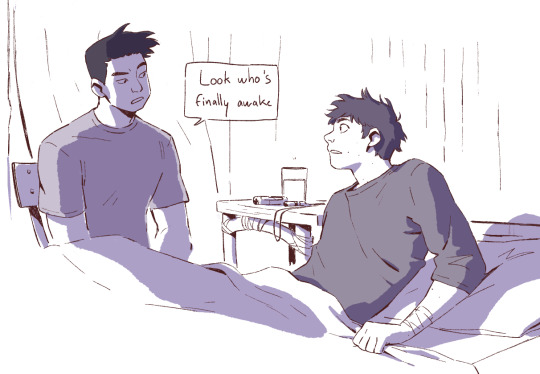

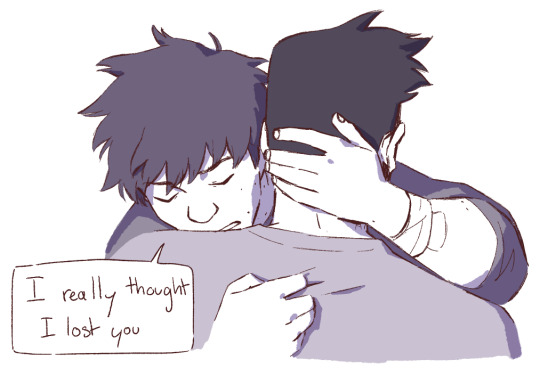


HII here’s a lil something for @thominho-week-2023!!!
- Day 2: Road Trip
- Day 3: “I really thought I lost you”
#The Maze Runner#tmr#thominho#tmr thomas#tmr minho#thominho week 2023#tmwd2#tmwd3#myart#YES i'm so happy that i had time to draw something this year!!!#kinda imagining jorge popping his head outta the window giving a few taps on the car like HEY for the last time BERTHA ISN'T A DATING SPOT#OH i should add Jorge to tags damn#tmr jorge#there#anyway yes those are also#canon compliant#minho deserves to be hugged#i like that he's just like. holding his Emotions in as thomas wakes up from the dead and the hug just. opens the Fucking Dam#if you think i've had enough of angtsy safe haven thominho you are DEAD WRONG and guess what i got MORE coming#(someday)#(eventually)
548 notes
·
View notes
Text
still stuck on porjai, visibly pregnant, flirting with night
who fucking goes for it
i only know the asian culture i grew up in, obviously, and not thai culture. but the social stigma of being unmarried and pregnant? and having the nerve to still be flirting?? that's not the Good Girl thing to do, and i remember the way the Not Good Girls were treated and talked about where i grew up
so porjai actively trying to get dates? night finding out she's pregnant with her ex's kid and just. being fine with that? big deal to me
#last twilight the series#am i stating the obvious? maybe i'm just stating the obvious#because if you 'fucked up and got yourself pregnant' then you'd better hang your head in shame#flirting? with a nice boy? when you're in *that* condition? shame on you he deserves better#can't say i've ever given much thought to this type of scenario popping up in my gay little shows but#shocked to see it happen#i know moonlight chicken had a pregnancy storyline but those two were already together. and planned to get married#this is a different thing#and it genuinely makes me emotional#wow i sound VERY bitter huh#oops
166 notes
·
View notes